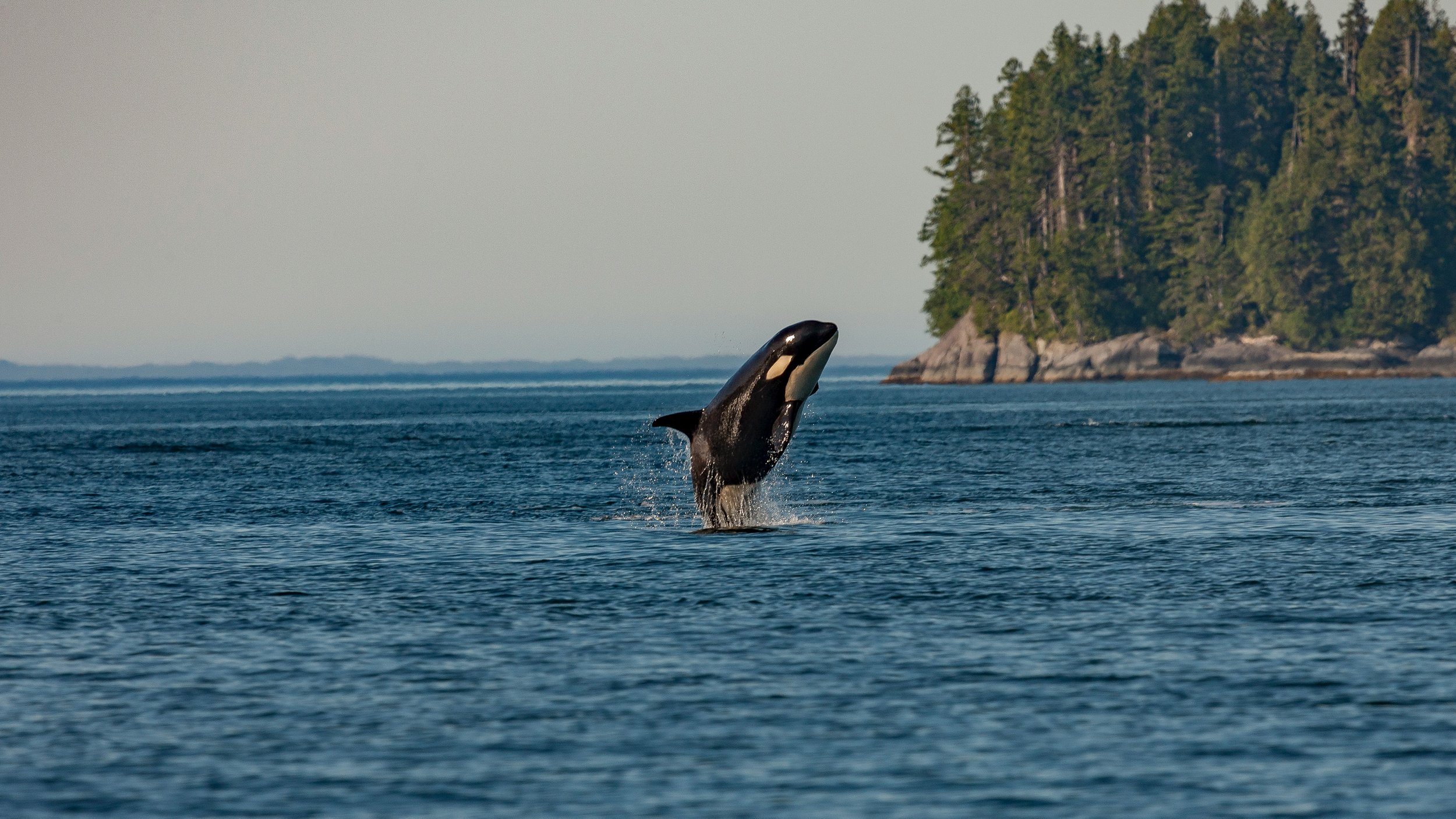US Bill to Phase Out Public Display of Captive Whales Reintroduced
The legislation would phase out orcas and beluga whales from being held in captivity at theme parks.
A bill that seeks to phase out the keeping of large whales in captivity in the United States has been reintroduced.
The legislation would outlaw the captive display of four large marine animal species currently held in theme parks and aquariums. These are orcas (also known as killer whales), pilot whales, false killer whales, and beluga whales.
Named the Strengthening Welfare in Marine Settings (SWIMS) Act, the bill was reintroduced on Jan. 30 by US Representatives Adam Schiff (D-CA), Jared Huffman (D-CA) and Suzan DelBene (D-WA), and US Senator Ron Wyden (D-OR).
There are currently around 50 whales living in captivity in the United States. But the bill would not apply to existing whales in captivity, which would help give facilities time to transition, and instead ensure no new whales are brought into captivity in the future.
The bill comes after increased public awareness around the ethics of keeping marine life in captivity. The issue received mainstream attention back in 2013 when the documentary Blackfish exposed on a global scale the tragic story of SeaWorld’s captive orca Tilikum, who suffered cruel and inhumane treatment in captivity and eventually killed several people.
In the following years, various controversies including dolphin attacks and whale deaths have kept marine theme parks in the US and across the world in the public spotlight.
“Science increasingly supports the conclusion that we cannot provide conditions in a concrete enclosure to accommodate the size, wide-ranging nature, and physiological and social needs of these four species,” said Dr. Naomi Rose, a marine mammal scientist at the Animal Welfare Institute (AWI).
The SWIMS Act, Dr. Rose explains, “would compel marine theme parks and aquariums to focus on educational and conservation opportunities that do not perpetuate the unnecessary suffering of these animals.”
Where Do Captive Whales Come From?
A key focus of the SWIMS Act would help address the problematic issue of sourcing captive whales. Currently, captive whales around the world are sourced from either captive breeding programmes or from the wild.
Larger species of whale have not been caught in US waters for decades, and wild-caught whales from elsewhere in the world have not been imported for 30 years.
However, current US law does not reflect this trend and still allows capture and import permits to be issued. The SWIMS Act would explicitly prohibit such practices. Campaign groups like the Animal Welfare Institute say such a legal ruling is needed to make it impossible for a future change in corporate policy to undo all the progress that has been made over the last dozen years due to mounting public pressure.
“The science and tragic real-life experiences have shown us time and again that marine mammals suffer from being in captivity - often being exploited and abused. But our laws and practices don’t reflect that,” said Representative Huffman, who was among those who reintroduced the bill. “We must finally make the humane changes that have been needed for decades.”
A Kinder Future for Whales?
The reintroduction of the SWIMS Act highlights a growing movement towards a future where marine animals like orcas and beluga whales are kept in the wild - and not in captivity.
Canada became a prime example of this momentum when it passed the so-called “Free Willy” bill in 2019, which outlawed the trade, possession, capture, and breeding of whales, dolphins, and porpoises. The bill effectively ended the unnatural practice of using cetaceans for entertainment or keeping them in captivity in the country.
There is also positive progress being made in creating new animal sanctuaries where formerly-captive marine animals can live the remainder of their lives in more natural environments. These sanctuaries typically incorporate large, protected, designated areas in real-world oceans.
In one promising example, a pair of belugas whales who once performed at an aquarium in China were successfully relocated to the world’s first open-water sanctuary for belugas, located in Iceland’s Klettsvik Bay.
We Have A Favor To Ask…
Species Unite amplifies well-researched solutions to some of the most abusive animal industries operating today.
At this crucial moment, with worldwide momentum for change building, it’s vital we share these animal-free solutions with the world - and we need your help.
We’re a nonprofit, and so to keep sharing these solutions, we’re relying on you - with your support, we can continue our essential work in growing a powerful community of animal advocates this year.






